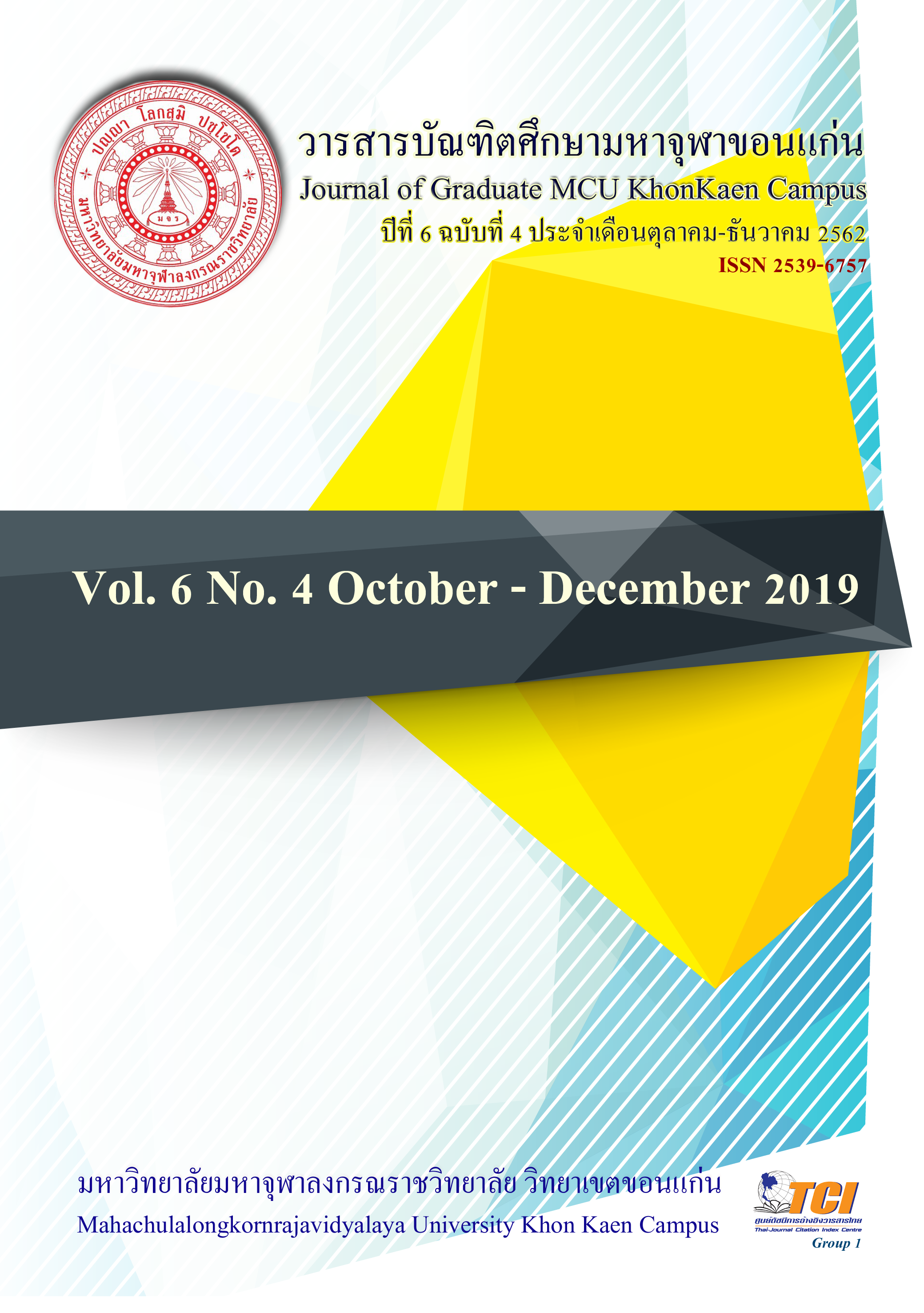The Study of The Epistemology of David Hume and the Buddhist Epistemology
Main Article Content
Abstract
This article has the objectives 1) to study the concept of epistemology of David Hume 2) to study Buddhist epistemology 3) to study and analyze David Hume's epistemological concepts and Buddhist epistemology
Research methodology is a documentary research. The scope of research is to study the concepts of epistemology of David Hume and Buddhist epistemology. The combination of these two theories, which is the analysis of David Hume's epistemological theory and Buddhist epistemology
The research found that
The knowledge of Hume's views is not sensory. The Buddhist philosophy of knowledge is born both directly and indirectly, summarizing the similarities and differences of both knowledge in order to lead to the correctness of knowledge as follows. Came from SutaiPanya and Jintayapanya Of Theravada Buddhist philosophy and Hume's sensory origin Classified as indirect knowledge To satisfy their own curiosity 2) Origin of knowledge Both Theravada and Hume philosophy Relying on their beliefs as leaders to seek knowledge and differences 1) Buddhist philosophy has a source of direct knowledge that comes from internal spiritual practice 2) knowledge of inner wisdom is a high level of knowledge Can cause the end of passion
Article Details
References
Kanatikarn, P. (2001). Philosophy. Bangkok: sahatammik.
P.A.Prayutto, P. (1998). Bhuddadham. Bangkok: Buddhist Foundation.
Poklangdon, P. (1997). Basic philosophy. Changmai: Chiang Mai Rajabhat University.
Teankaew, B. (2000). Epistemology (knowledge theory). Bangkok: OS.Printinghouse.
Tikkapunyo, P. (1997). The study of knowledge theory of Theravada Buddhist philosophy and Bertal Russell. Mahachulalongkornrajavidyalaya University.
wittavet, s. (1993). Hume's theory of knowledge. bangkok: chulalongkorn univercity.

